
Office address: 50 Hudson Yards New York, NY 10001
Website: www.blackrock.com
Year established: 1988
Company type: investment company
Employees: 19,800+
Expertise: asset management, risk management, ETFs (iShares), fixed income, alternative investments, wealth management, retirement solutions, private equity, infrastructure, real estate, sustainable investing, financial technology
Parent company: N/A
Key people: Larry Fink (CEO), Rob Kapito (president), Joud Abdel Majeid (global head), Stephen Cohen (CPO), Ed Fishwick (CRO), Rob Goldstein (COO), Martin Small (CFO), Chris Meade (CLO)
Financing status: N/A
BlackRock is a global investment company from New York, offering asset management, advisory, and risk management services. The firm manages $11.5 trillion in assets as of October 2024 and operates in over 38 countries. With over 19,800 employees, the company serves clients in more than 100 countries, helping them achieve long-term financial well-being through innovative financial solutions.
BlackRock was founded in 1988 by Laurence Fink and seven partners, driven by a desire to manage assets with a focus on risk management and client interests. The company quickly grew, and in 1999, it launched Aladdin, its proprietary technology that transformed the risk management industry. During the 2008 financial crisis, the company was tapped by the Federal Reserve to assess Bear Stearns' assets, playing a crucial advisory role.
In 2009, it acquired Barclays Global Investors, becoming the world's largest asset manager and integrating both active and index strategies. In 2017, the company deepened its focus on investment stewardship, emphasizing the long-term value of purpose in profitability. By 2024, it partnered with Vestmark to boost model portfolios, further expanding its offerings for registered investment advisors.
BlackRock offers a wide range of investment products and services designed to meet the diverse needs of its clients. Below are the some of their key offerings:
BlackRock’s global team provides insights on markets, economies, and long-term strategies, helping clients navigate the complexities of investing. Whether it is a professional or a new investor, their services aim to support financial success while also empowering employees and giving back to communities.
BlackRock’s culture is built on a commitment to its clients, employees, and core principles. The company focuses on employee growth, offering benefits that support physical, emotional, and financial well-being. The firm provides various resources and benefits to keep employees engaged and balanced, some of which include:
The firm’s commitment to diversity, equity, and inclusion (DEI) is central to its success, fostering an environment where employees feel a sense of belonging. The company’s global platform thrives by incorporating diverse perspectives to deliver the best outcomes for clients. By embracing unique skills and experiences, they empower employees to collaborate effectively and contribute to a shared mission:
The company’s social impact focuses on making financial prosperity accessible to more people and communities. The BlackRock Foundation supports low- to moderate-income households by helping them save, invest, and build wealth. Initiatives include:
BlackRock’s approach to corporate sustainability focuses on long-term value for shareholders, employees, communities, and clients. The company is committed to transparency, providing stakeholders with meaningful sustainability-related information.
Laurence Fink is company’s chairman, CEO, and founder, also serving on the boards of NYU and the World Economic Forum. Before founding BlackRock in 1988, he was a managing director at The First Boston Corporation. Fink earned a BA in political science and an MBA in real estate from UCLA.
The company’s key leadership team includes notable figures who lead the firm’s operations across global markets:
To prepare for potential market volatility, BlackRock advises financial professionals to reduce risk and shift toward safer investment options. With uncertainty ahead, particularly due to macroeconomic concerns and the upcoming elections, the firm highlights the importance of defensive strategies like the BlackRock Flexible Income ETF (BINC). This strategic adjustment also reflects their broader move toward active management, signaling its belief in a more hands-on approach during turbulent times.
The company recently reached an $11.5 trillion milestone in assets under management by the third quarter of 2024. This growth was driven by strong client inflows, notably into ETFs, fixed income, and private assets. BlackRock is accelerating its push into private assets, following acquisitions like Global Infrastructure Partners, and continues to lead in both public and private markets.
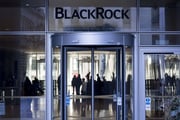
The asset manager drove a significant part of the shift into environmental, social and governance investments by including its primary ESG fund into the model portfolios it offers to investment advisers.
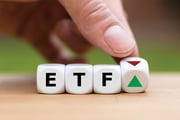
In stride with record net inflows, the ETF industry is launching new funds and finding creative ways to take market share from the legacy mutual fund space.

This month’s #AdviserTech roundup includes Halo Investing’s $100 million funding round, Orion’s acquisition of BasisCode Compliance and Geowealth’s $19 million funding round.

The Glasgow Financial Alliance for Net Zero is finding its can't attract some of the top names in asset management, including Pimco, Fidelity Investments and Capital Group.

Just three of the 14 companies surveyed — BlackRock Inc., Capital Group Inc. and J.P. Morgan & Co. — received top marks in the 20th percentile, according to the research.

Lasso, a social-networking app, is hoping to land the millions of new retail investors using online investing apps with financial advisers.
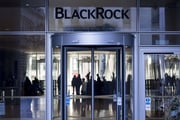
In a move to reduce its reliance on State Street's custody services, BlackRock will shift 40% of the $2.2 trillion in assets to Citigroup, 30% to JPMorgan Chase and 15% to Bank of New York Mellon.

The technology allows advisers to trade weighted baskets of stocks, allowing clients to directly own a portfolio of equities designed to mimic the holdings of an ETF.

The acquisition of San Jose, California-based fintech Optimal Asset Management meets a growing client need for greater investment customization, according to the company.

About $120 billion has flowed into ESG exchange-traded funds in 2021, but just a handful of institutional investors control a large part of the market.
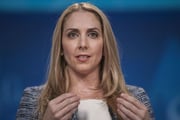
Nancy Davis has made a splash with IVOL, an actively managed exchange-traded fund that lets investors bet on inflation and interest-rate volatility.
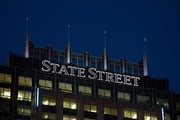
State Street's product is far from being the first in the DC market — but the plans using it are potentially the largest to opt for a target-date series paired with an insurance feature.

MarylandSaves will automatically make payments to account holders when they reach 'retirement age,' unless they specify otherwise.

CITs are on track to surpass mutual funds in target-date assets. Participants in 401(k)s that use CITs often stand to save a few basis points or more.

This month’s #AdviserTech roundup includes Schwab’s announcement of a direct indexing initiative, Fidelity’s launch of real-time fractional share trading, and Addepar’s acquisition of AdvisorPeak.
